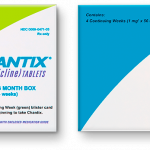Why Was Tagamet Taken Off The Market?

Tagamet is a brand of cimetidine produced and sold by GlaxoSmithKline. It is used to treat ulcers; gastroesophageal reflux disease (GERD), a condition in which backward flow of acid from the stomach causes heartburn and injury of the food pipe (esophagus); and conditions where the stomach produces too much acid, such as Zollinger-Ellison syndrome. Over-the-counter cimetidine is used to prevent and treat symptoms of heartburn associated with acid indigestion and sour stomach. Cimetidine is in a class of medications called H2 blockers. It decreases the amount of acid made in the stomach.
Tagamet is also used sometimes to treat stress ulcers, hives and itching, and viral warts, and to prevent aspiration pneumonia during anesthesia. Talk to your doctor about the possible risks of using this medication for your condition.
Cimetidine was approved in the United Kingdom in 1976 and was approved in the United States by the Food and Drug Administration for prescriptions in 1979.
Is Tagamet discontinued?
Yes, GlaxoSmithKline has stopped making Tagamet for business reasons that had nothing to do with the safety of the drug, but there are generic versions of Cimetidine available. Sometimes companies stop making brand-name medications because the generic products work the same and are usually more affordable.
Following Zantac discontinuation due to contamination with N-nitrosodimethylamine (NDMA), a suspected cancer-causing agent, Tagamet (cimetidine) was one of the drugs listed as a possible Zantac alternative for patients.
Does Tagamet cause cancer?
No, Tagamet does NOT cause cancer. An FDA-led analysis and preliminary tests of alternatives revealed that Tagamet (cimetidine) does not contain N-nitrosodimethylamine (NDMA), the cancer-causing agent found ranitidine. In fact, recent studies suggest that cimetidine may improve the outcome in cancer patients by inhibition of cancer cell proliferation, stimulation of the lymphocyte activity by inhibition of T cell suppressor function, and inhibition of histamine’s activity as a growth factor in tumors.
What side effects does cimetidine cause?
Cimetidine may cause side effects. Tell your doctor if any of these symptoms are severe or do not go away:
• headache
• diarrhea
• dizziness
• drowsiness
• breast enlargement
Some side effects can be serious. The following symptoms are uncommon, but if you experience any of them, call your doctor immediately:
• confusion
• excitement
• depression
• nervousness
• seeing things or hearing voices that do not exist (hallucinating)
Cimetidine may cause other side effects. Call your doctor if you have any unusual problems while taking this medication.
If you experience a serious side effect, you or your doctor may send a report to the Food and Drug Administration’s (FDA) MedWatch Adverse Event Reporting program online (http://www.fda.gov/Safety/MedWatch) or by phone (1-800-332-1088).





